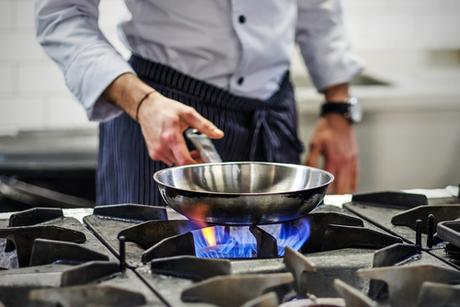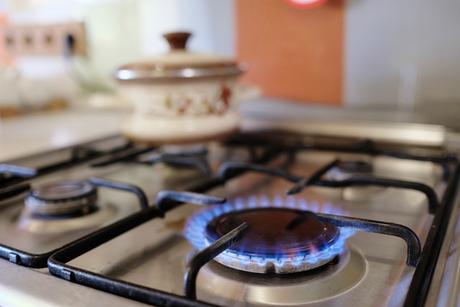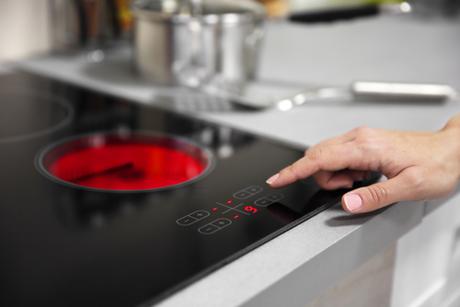If you're in the market for a new kitchen stove, you've probably given some thought about the specific features and styles you want it to have. But before you can get to all that, you first need to ask yourself one key question: Gas stove or electric?

While many homeowners strongly prefer to cook with gas, one type isn't necessarily better than the other. It all depends on your preference and the needs of your family. To help you decide one way or the other, here are the pros and cons of both types of kitchen stoves.
Gas StoveWith its unbeatable control and performance, a gas stove offers many benefits to homeowners and aspiring chefs. This type of kitchen stove uses natural gas, which enters the burner tube on your stove from the gas line connected to your main gas supply. Once the natural gas hits the igniter, it results in a brilliant blue flame on the appropriate burner.

Many cooking enthusiasts swear by gas stoves for their superior cooking performance. It's worth noting that many professional chefs cook on them as well, although most of us aren't serving up expensive Michelin Star meals on our state-of-the-art kitchen appliances.
So, are they truly worth it for the amateur chef? Here are the pros and cons of gas stoves.
Pros of a Gas Stove- Gas stoves offer better control and precision. One of the biggest advantages of a gas stove is its unbeatable temperature precision and control. When you have more control over the temperature, your cooking is simply better for it.
- They heat faster. With a gas stove, you don't need to tap your foot impatiently while waiting for your stove to heat the pan. Gas stoves heat up quickly, allowing you to get your cooking done in less time.
- Even heat distribution. Unlike electric ranges, which pulse with heat, gas stoves deliver an even distribution of heat consistently throughout your cooking.
- Better for emergencies. Live in an area with frequent storms and power outages? A gas stove can function even in emergencies when you simply turn on the gas and light the burner with a lighter.
- They're more expensive. The thing that stops most homeowners from getting a gas stove is their high price tag. However, it's worth pointing out that gas stoves may be less costly to run compared to electric stoves, depending on the natural gas rates in your area.
- You need a gas hookup in your home. If you don't have a gas hookup in your kitchen already, the cost of running a gas line to your kitchen could be costly.
- Their performance depends on where you live. Some gas stoves can take longer to cook meals because the gas line doesn't have enough pressure to heat quickly.
- Some cities are phasing out natural gas. Berkely, California recently became the first U.S. city to ban natural gas in the construction of new buildings, and other cities may follow suit. It's something you might want to consider before going through the trouble of converting your electric stove to a gas stove.
Electric stoves have two main styles: conventional coils and radiant coils. When you turn the heat on, 240 volts of alternating current are sent to heat the element.

When the element reaches the desired temperature, the control switch shuts off the voltage. It then cycles back on and off to maintain the proper temperature.
Pros of an Electric Stove- Better for roasting. If you're doing a lot of roasting, electric is arguably the way to go. Heat from an electric stove is drier, which is perfect for getting your food nice and crispy.
- They're easy to clean. Many modern electric stoves are made with sleek, glass-ceramic cooktops that are easy to wipe down and polish, making them ideal for families and busy professionals alike.
- They provide high heat. Electric stoves are comparable to gas stoves in terms of how much heat they provide. With modern electric stoves providing larger burners, you can now boil a huge pot of your favorite dish to feed your extended family.
- Not so good for baking. If you're a serious baker, it can be difficult to get your baked goods as moist as you'd like them. The dry heat from an electric stove is more likely to dry out your cakes and muffins.
- Uneven heat distribution. One of the biggest gripes of the electric stove is its uneven heat distribution. Uneven cooking is a deal-breaker for serious chefs.
- Not forgiving for certain types of pans. Unfortunately, you're stuck using the oven for your cast iron cookware if you have an induction stovetop.
As you can see, there are several things you'll want to keep in mind as you shop for a new kitchen stove. It all comes down to your personal preference.
If you enjoy baking and roasting equally, you can also get a dual-fuel range that offers the best of both worlds. This way, you can get the gas cooktop and the electric oven you need to cook up savory meals in your kitchen.

